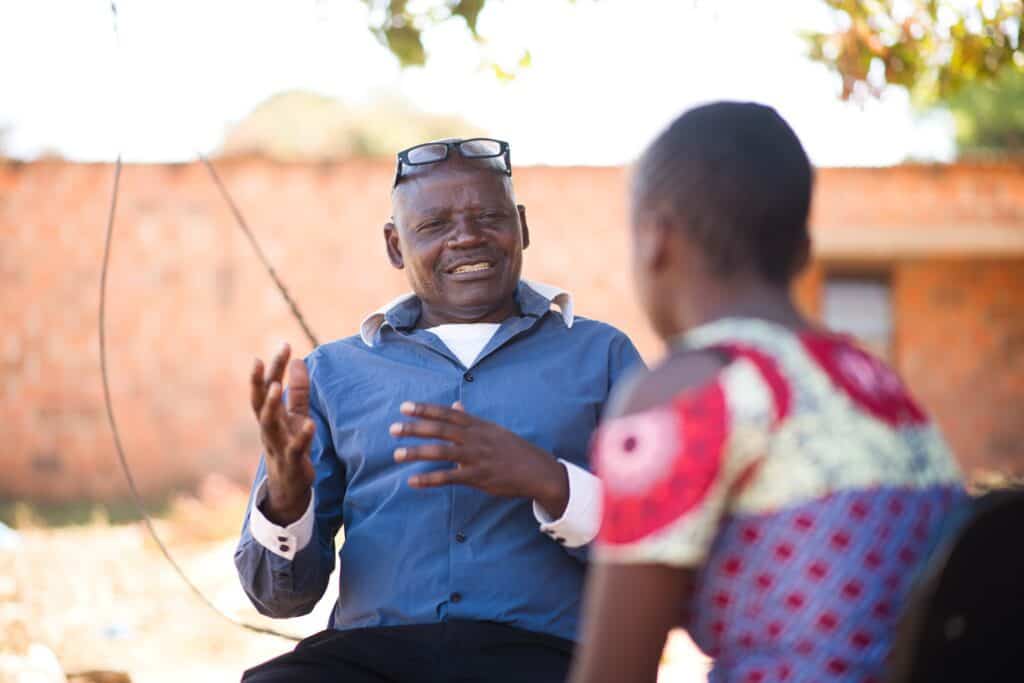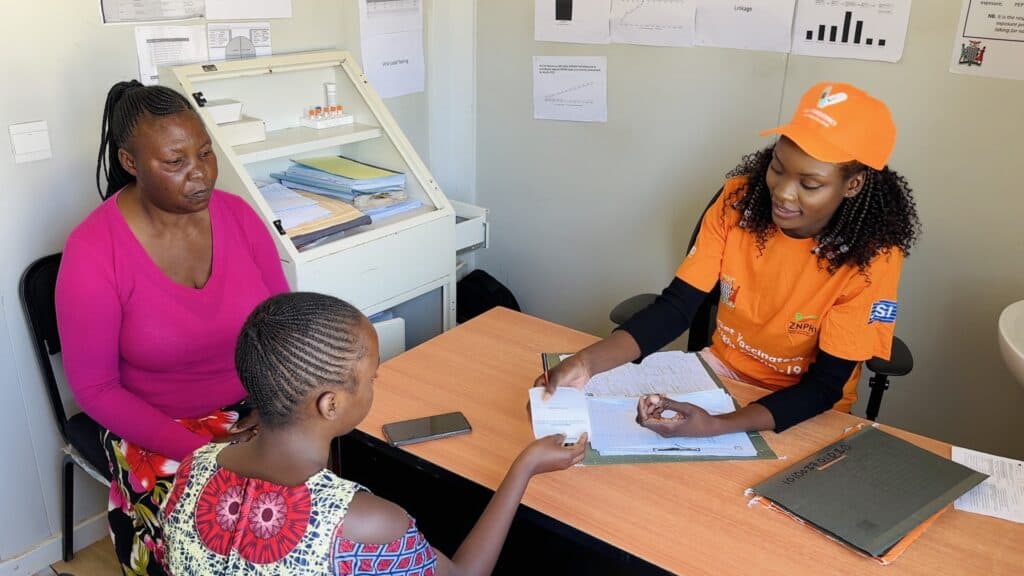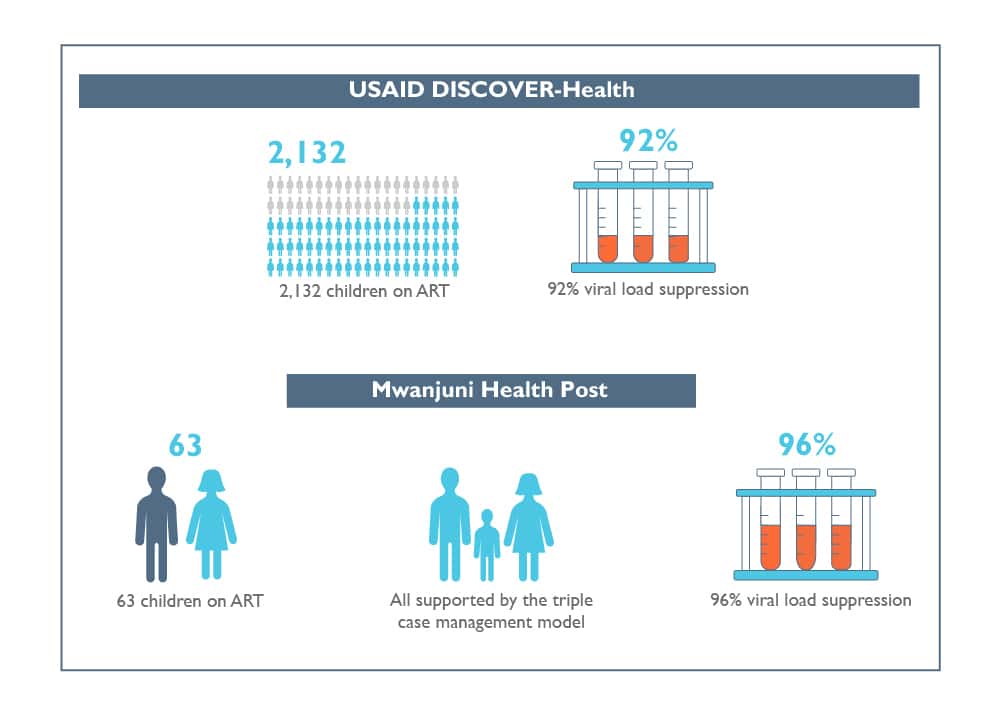USAID DISCOVER-Health’s Triple Case Management Model: Improving pediatric HIV treatment adherence in Zambia
October 9th, 2023 | story
Jacqueline is a busy grandmother. She lives about 20 km north of Zambia’s capital city, Lusaka, with her husband and their 16-year-old granddaughter Edith, and sells fruit and vegetables at a local market. In 2015, when Edith’s mother passed away and her father left home, Jacqueline stepped in to care for Edith, who was nine at the time. Both of Edith’s parents had HIV, and although Jacqueline didn’t know it then, so did Edith.
“When my daughter died, I went to collect Edith and bring her to live with us,” Jacqueline says. “I didn’t know she was HIV positive; it was something that was hidden from us. She had a really bad cough, so we took her to the hospital. They found TB and confirmed she had HIV.”

Jacqueline took charge and sought medical advice on how best to care for her granddaughter. Treatment adherence was going well, but Jacqueline and Edith needed to travel long distances to the clinic for Edith’s appointments, which was time-consuming and costly. In 2019, Jaqueline heard about something a little closer to home: the Mwanjuni Health Post, where USAID DISCOVER-Health operates its triple case management model.
With support from PEPFAR, the USAID DISCOVER-Health project developed the triple case management model to help families like Jacqueline’s. The model’s three-pronged support team comprises a parent or guardian, a community health care worker, and a clinician to ensure that each child who has HIV is diagnosed, linked to treatment, and well supported. This trio works together to make sure the child receives safe, effective, and holistic care, including appointment reminders, medicine refills, and counseling.
Eunice, an antiretroviral therapy (ART) provider and the clinician on Edith’s care team, says that the model “helps caregivers feel less alone. We’re all invested in the child as a team. It lightens people’s load and we see better health outcomes for the children .”
Empathy and open communication are at the heart of the model and Eunice credits that for its success. “Parents can be scared to test their children and don’t know how to talk to them about HIV. We are here to help have those conversations. Parents worry it’s a death sentence for their children. We’re here to say it’s not, but adherence is key.”

Also working with Jacqueline and Eunice is Cladio, a community health worker. Community health workers help dispel myths and stigma about HIV, and link those who need it to care. “People were afraid to come to the clinic. They used to be so scared about HIV,” explains Cladio. “They hear HIV information from me and they know and trust me.”
While receiving care through the Mwanjuni Health Post, Edith’s team put her on the new dolutegravir (DTG) treatment regimen, which has led to significant improvements in HIV treatment among children. The regimen is effective, easy to take, and has fewer side effects than other treatment options, making it easier to adhere to.
As of July 2023 USAID DISCOVER-Health supported 2,132 Zambian children with ART, with over 99 percent on the DTG regimen. Ninety-two percent of children receiving treatment with DTG have reached viral suppression.

With the support of the triple case management model and DTG treatment regimen, Edith’s viral load is suppressed, and she is living a healthy life. “I take my medicine and I feel comfortable asking questions,” she says. “Life is precious. You need to take care of yourself and your health. My HIV status won’t hold me back!”
We strive to build lasting relationships to produce better health outcomes for all.